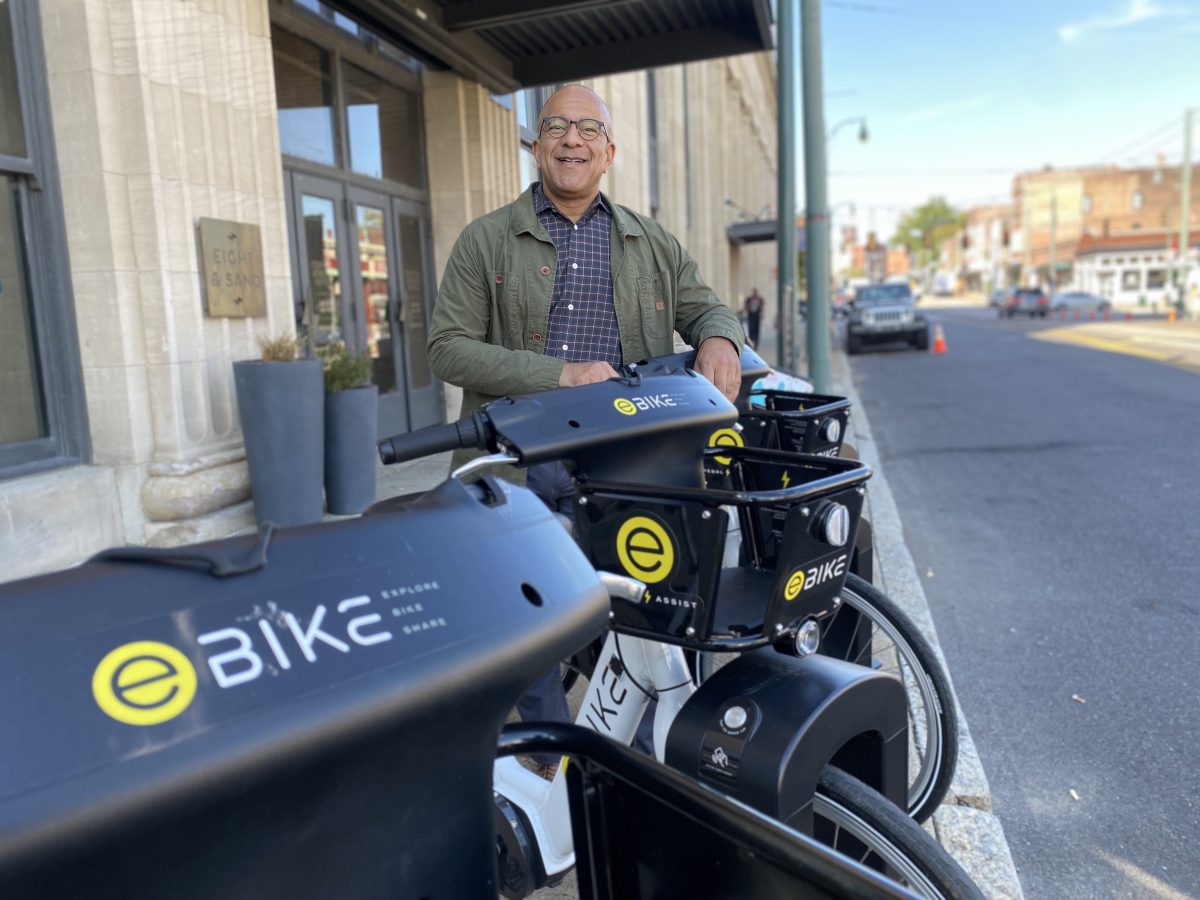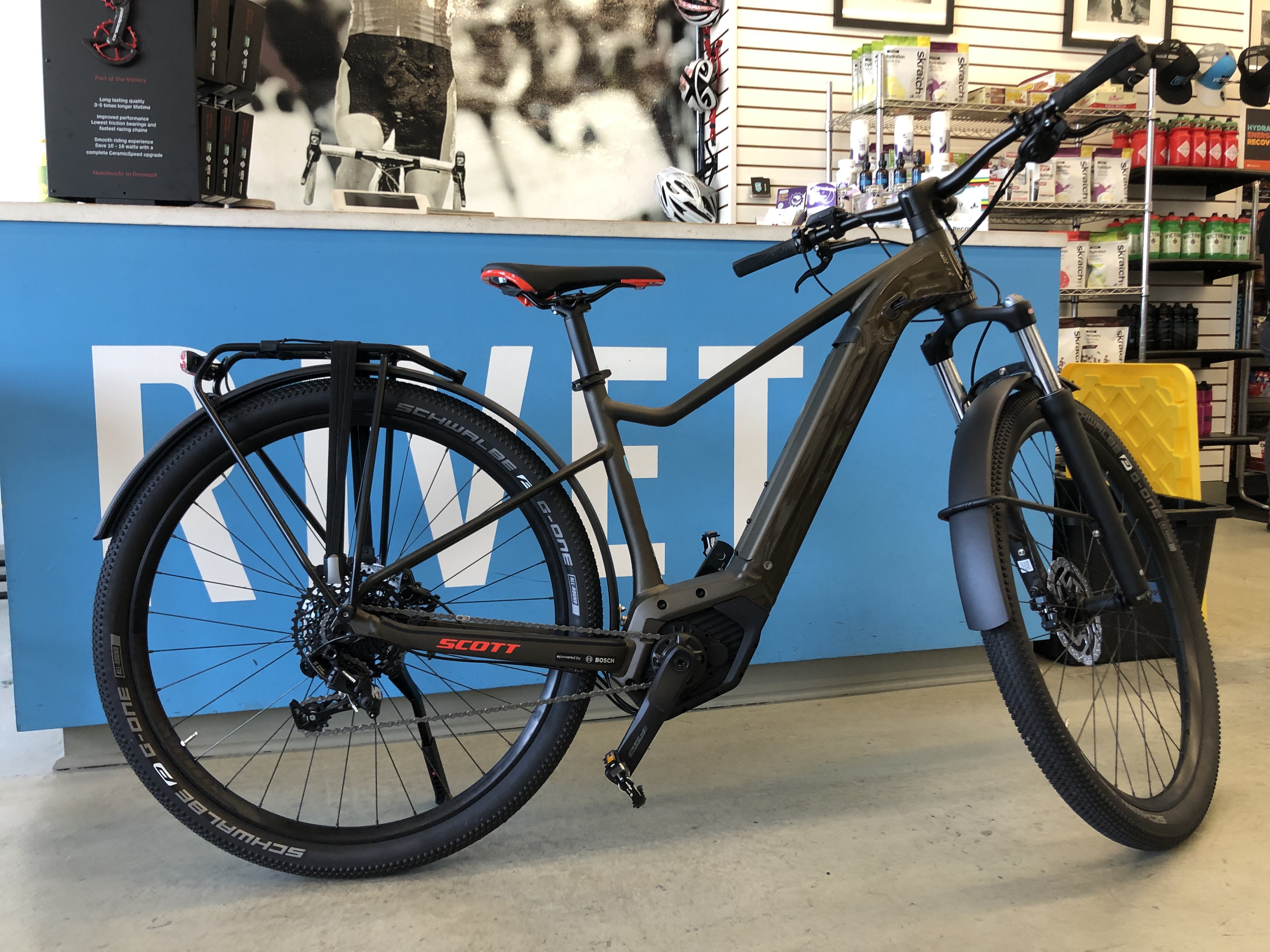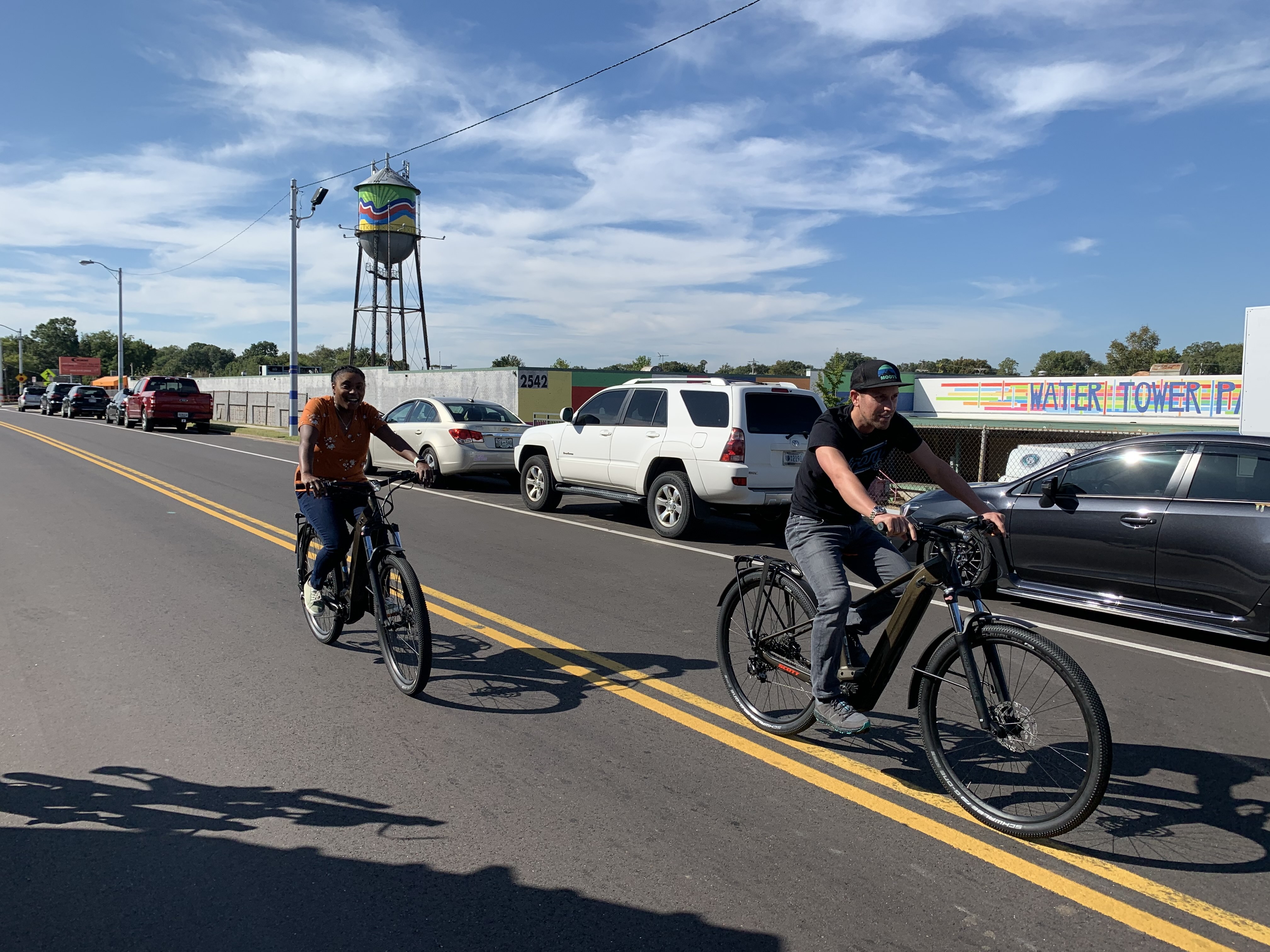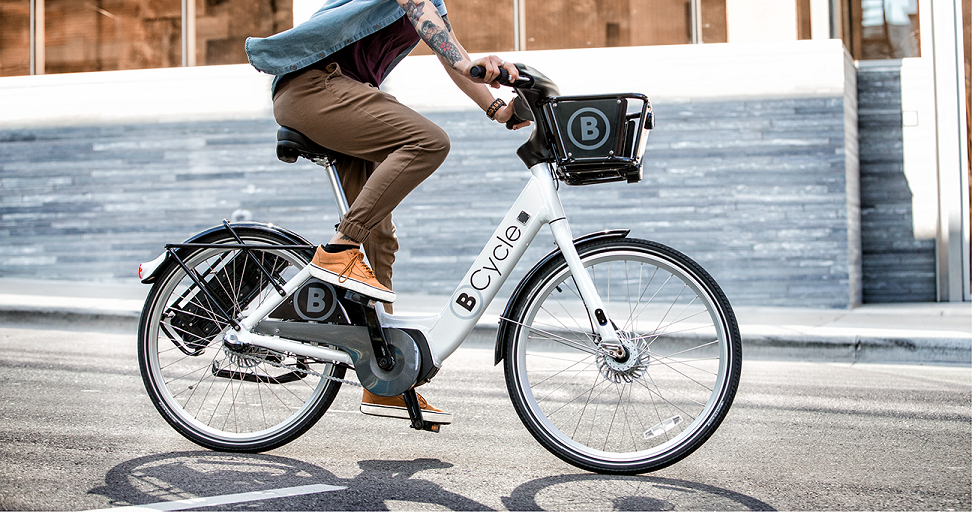The city’s bike share system has gone electric.
Explore Bike Share (EBS) began exploring how to integrate electric bikes to its fleet more than two years ago. Now, 300 electric bikes idle in brand-new docking stations that make for a more user-friendly check-out.
The new bikes, like the previous acoustic (non-electric) bike-share bikes, are from B Cycle, a subsidiary of Trek. The electric bikes look similar to the original models, too, with the step-through frame, curved bat-wing handlebars, adjustable seat, front basket, kickstand, and throttle bell. But it’s the battery and motor that set the electric bike miles apart from its lo-fi cousin.
E-bike riders may be surprised when they pedal off for the first time. The motor kicks in and with hardly any leg power at all, the bike is off, almost on its own. The first-time feel of this power yields a result so routine it has a name, the e-bike smile.
We caught up with Anton Mack, executive director of EBS, to find out why they went electric, what that means for Memphis riders, and to learn what will happen to the non-electric bikes. — Toby Sells
Memphis Flyer: What tipped the scales from conversation to action on the e-bike conversion?
Anton Mack: There were a number of things that really made the difference for us, and most of that has to do with Memphis. Being in a city where it can get pretty hot and humid, we knew that a bike that could make the ride more pleasant would make the difference. I believe we’re the 22nd-largest geographic city in the country. We’ve got a lot of miles to cover. We knew that our riders would need to to be able to ride longer.
It was really those things, combined with the fact that we believe that our community really needs an accessible bike that will work for everybody. Once we took a few of those test bikes and let people ride, we realized that we were giving greater opportunities to different people.
MF: Some folks worried the bike system was in trouble once the electric scooters hits the streets. Was that part of the conversation at all?
AM: I don’t know that it was, in that sense. It was more so in the sense that e-bikes were getting so popular around the country, around the world. We knew people would be interested in them.
My thought was that people were going to get excited about the scooters because they were a new thing, even though they were only a month or so behind the [bike share system]. But when I walked home from the [Hyatt Centric] Sunday, people were whizzing everywhere on our e-bikes and it was exciting.
MF: Does the electric function of it give the bikes a greater practicality?
AM: The first thing we noticed is people starting riding them is that ride duration has more than doubled.
MF: What is the top speed of the bikes?
AM: 17 miles per hour.
MF: What is the total range on a full charge?
AM: The range will be about 30 to 32 miles.
MF: EBS is trying to buy more bikes, right?
AM: We’re about launch a fund-raiser to fill the gap to raise the additional funding. Our sponsorship from Central Station and [Shelby County] is already going towards that support and we’re hoping to have a few more stations so we can increase the number of stations.
MF: How much money do you need to fill the gap?
AM: We would love to raise as much as $300,000.
MF: What is happening with the non-electric bikes these are replacing?
AM: Several of them have been set aside for the University of Memphis. They’ve been talking about launching a program. [The bikes] were purchased initially with them in mind.
The other portion of them we really want to use in a new program. We’re calling it Breaking Barriers. We’re also looking for funding for that program. It will allow us to take some bikes into communities where folks have-not been able to afford the bike rental. We’re going to work with some neighborhood organizations that will help us identify the right constituents. The hope is to make them available for free.



 BCycle
BCycle